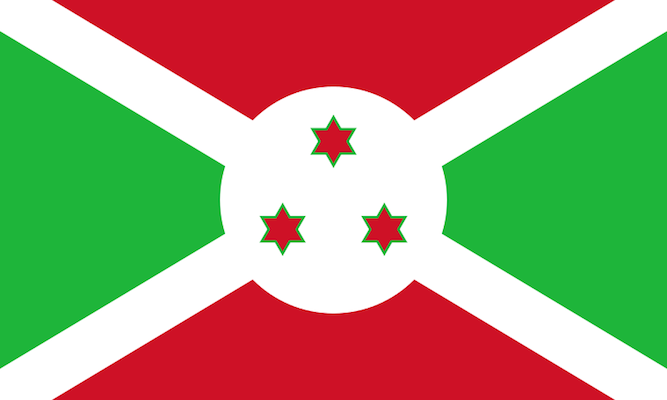After Burundi’s President Pierre Nkurunziza announced his long-anticipated plans to seek a third term as president in violation of the post-civil war constitution’s term limits, deadly protests erupted this weekend. They have escalated rapidly after initial fatalities:
Gunfire was heard and streets were barricaded in parts of the capital, Bujumbura, in the third day of protests, witnesses told the BBC. Police are blocking about students in the second city, Gitega, from joining the demonstrations, residents said.
The protests are the biggest in Burundi since the civil war ended in 2005. The army and police have been deployed to quell the protests, which have been described by government officials as an insurrection.
[…]
BBC Burundi analyst Prime Ndikumagenge says the phone lines of private radio stations have been cut, a decision apparently taken by the authorities to prevent news of protests from spreading.
This may be the contagion some observers speculated might unfold after the uprising in Burkina Faso last October, when President Blaise Compaoré tried to extend his presidency in a similar fashion.

Flag of Burundi
Burundi’s Army has been accused repeatedly of conducting extrajudicial mass executions of “rebels” and political opponents. Already, thousands of people have fled political persecution to neighboring countries in just a matter of months. Burundi also has a very low median age — half the population is younger than 17, according to the CIA World Factbook — and the President has essentially created child death squads by arming teenage members of his political party’s “youth wing.”
Burundi, which has the same colonially-fostered Hutu/Tutsi split as neighboring Rwanda, experienced a 12-year civil war beginning shortly before the Rwandan Genocide and continuing until 2005, despite repeated attempts to share power. The presidents of both countries were killed in a surface-to-air missile strike on their plane in 1994, in the incident which was widely seen as the trigger signal to initiate the genocide in Rwanda. However, the war in Burundi was already in progress at that point. Hundreds of thousands died before the 2005 peace deal.
It is interesting, however, to note that so far the armed forces have continued to respond to orders from President Nkurunziza. He is Hutu, and the armed forces are a mix of ex-rebel Hutus and the Tutsi regular troops from before the peace deal. In South Sudan, a merger of various ex-rebels from competing ethnic groups, which had been secured around the same time as the Burundi deal, basically broke down completely in December 2013 as certain factions obeyed the president and others the former vice-president, who had been sacked.


